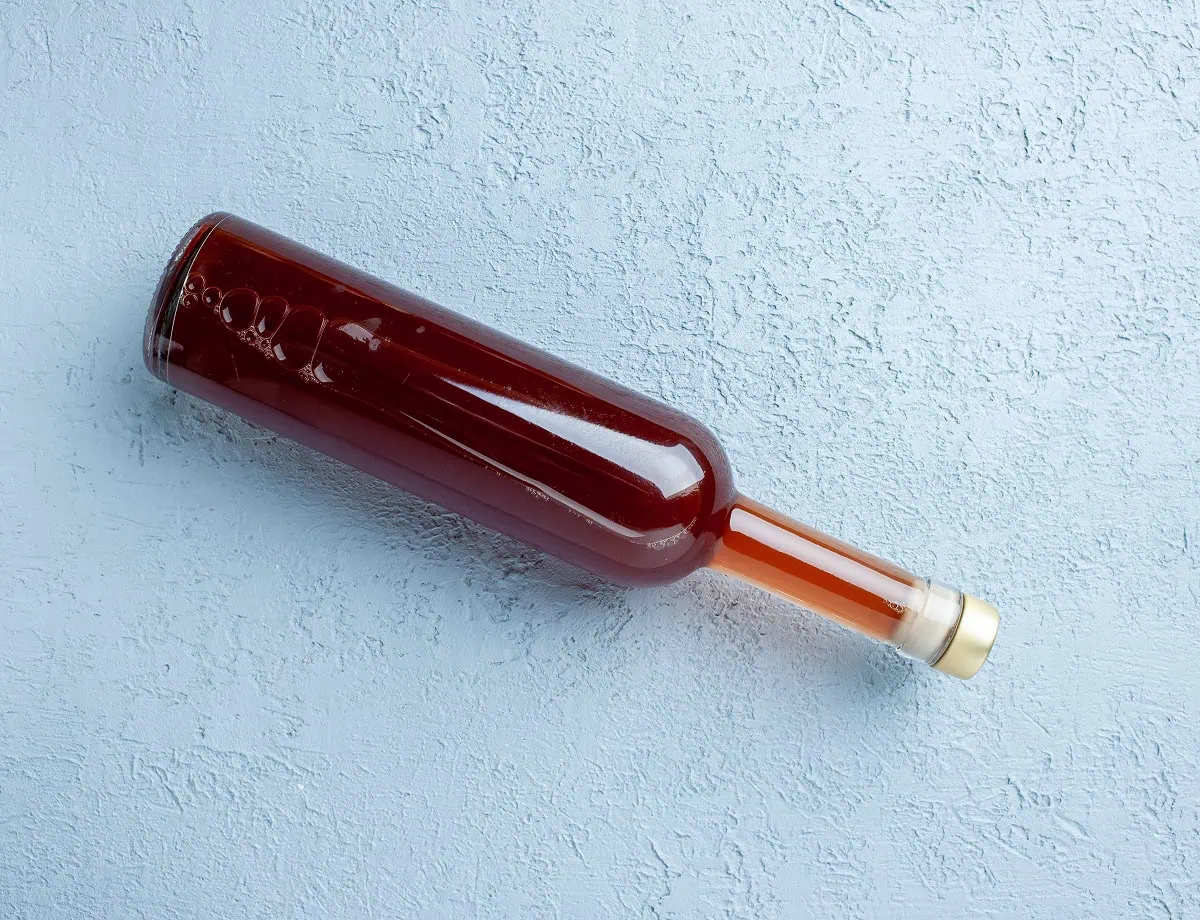🎁 Buy 6 Bottles, Get 6 FREE
Can You Freeze Ice Wine?

Yes, you can freeze ice wine, and it will still be safe to drink. However, some sources suggest it’s better used for cooking afterward, as freezing can affect the flavour. When wine is frozen, its balance, taste, and texture may change because the water content freezes, though it won’t freeze solid due to the alcohol. For best results, you can freeze leftover ice wine in ice cube trays or freezer-safe bags to use later in cocktails, slushies, or cooking.
Ice wine, also called Eiswein, is loved for its rich sweetness and perfect balance of acidity. But can you freeze ice wine? Does freezing change the taste, smell, or quality of the wine?
This guide will explain everything you need to know about freezing ice wine. We’ll look at whether it’s safe to freeze and how it might affect your special bottle.
What Happens If You Freeze Ice Wine?
Can ice wine freeze? The short answer is yes, but it’s not as simple as just putting it in the freezer. Ice wine has a lot of residual sugar, which lowers its freezing point. While regular wine might freeze around -6°C, ice wine usually needs temperatures closer to -10°C or colder, depending on how sweet it is.
Still, just because ice wine can freeze doesn’t mean it should. Freezing it can cause several issues that might ruin your wine. Let’s look at why:
1. Texture and Flavour Changes
Ice wine is loved for its smooth texture and intense sweetness. When it freezes and then thaws, its structure can change, affecting the texture and breaking down the flavours. You might find it less silky and the taste more muted after freezing.
2. Aroma Damage
The aromas of ice wine—like honey, apricot, and peach—are a big part of the experience. Freezing can weaken these scents, so when you open the bottle, you might miss out on the wine’s usual complexity.
3. Bottle Breakage Risks
Freezing wine causes it to expand, which can lead to the glass bottle cracking or the cork popping out. Either way, the wine could be ruined, and you might end up with a messy freezer.
4. Loss of Appearance
Ice wine is often saved for special occasions, and how it looks matters. Freezing can damage the label, create frost that sticks to the bottle, or cause sediment to settle at the bottom during thawing. This can make the wine less appealing when it’s time to serve it.
Because of these risks, freezing ice wine is not recommended if you want to enjoy it fully. Ice wine is best savoured fresh, just the way it was meant to be!
While freezing might be an option in unusual situations, storing ice wine correctly from the start is the best way to preserve its flavour and quality. Proper storage eliminates the need for freezing and ensures your ice wine ages beautifully.
When Freezing Might Be Okay
Although freezing ice wine isn’t the best option, there are certain situations where it can work—or at least won’t ruin your wine completely.
1. Saving Leftover Ice Wine
If you’ve opened a bottle and don’t want to waste the leftover wine, freezing it can be a good solution. Pour the wine into an airtight container or an ice cube tray. These frozen cubes can later be used in cocktails or desserts without losing too much quality.
💡Pro Tip: Use silicone ice cube trays so the frozen wine is easier to remove and doesn’t pick up any freezer odours.
2. Cooking with Ice Wine
If a recipe calls for a touch of sweetness and acidity, frozen ice wine works great. Use it for making rich sauces, glazes for roasted meats, or reductions for desserts. Freezing the wine in small portions makes it convenient to use when cooking.
3. Freezing During Emergencies
Sometimes, freezing ice wine is the safest option. For example, if your fridge breaks or you’re moving house, freezing it temporarily can help prevent spoilage. Just follow these steps to avoid damaging the wine:
- Chill the wine in the fridge first to reduce sudden temperature changes.
- Transfer it to an airtight plastic container; this prevents corks from popping or bottles from breaking in the freezer.
When you’re ready to use frozen ice wine, let it thaw slowly. Bring it back to fridge temperature gradually to prevent further damage to its flavour.
While freezing might be an option in unusual situations, storing your ice wine properly eliminates the need for freezing altogether. Read our ice wine storing & preserving guide and find useful tips.
So, Can You Freeze Ice Wine?
Ice wine is delicate and needs to be treated carefully to keep its rich flavour and aroma. While you can freeze it, doing so might affect the taste and overall experience. Before freezing a bottle, think about whether it’s the best option. Instead, consider storing it properly or finding creative ways to use any leftovers.


